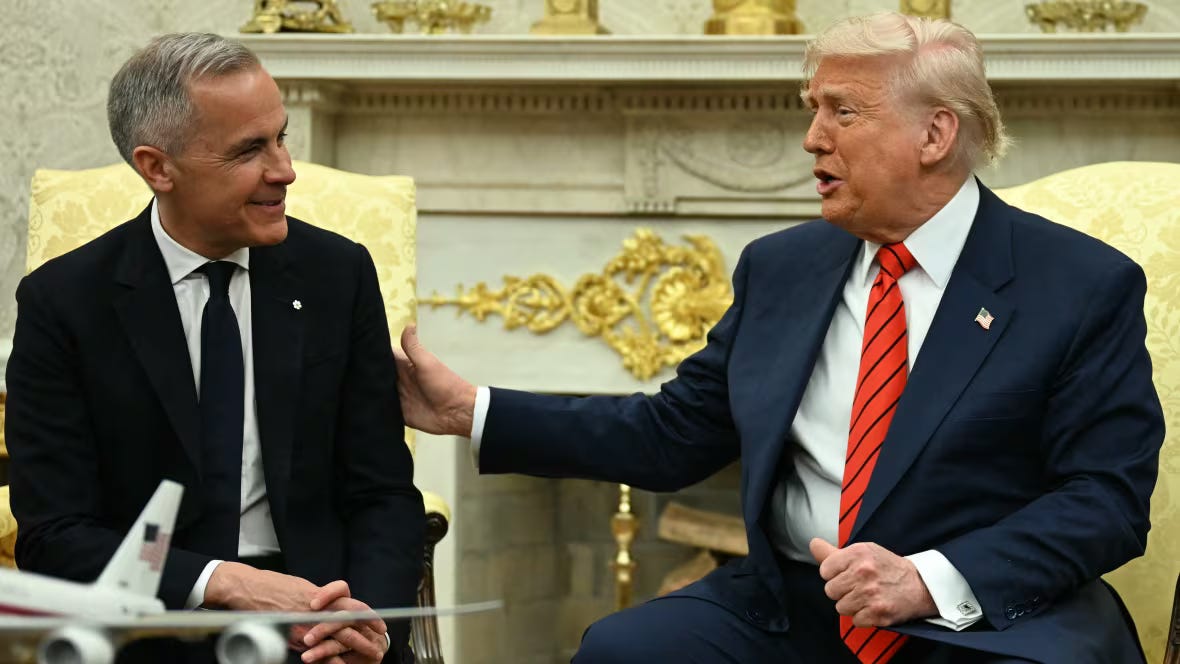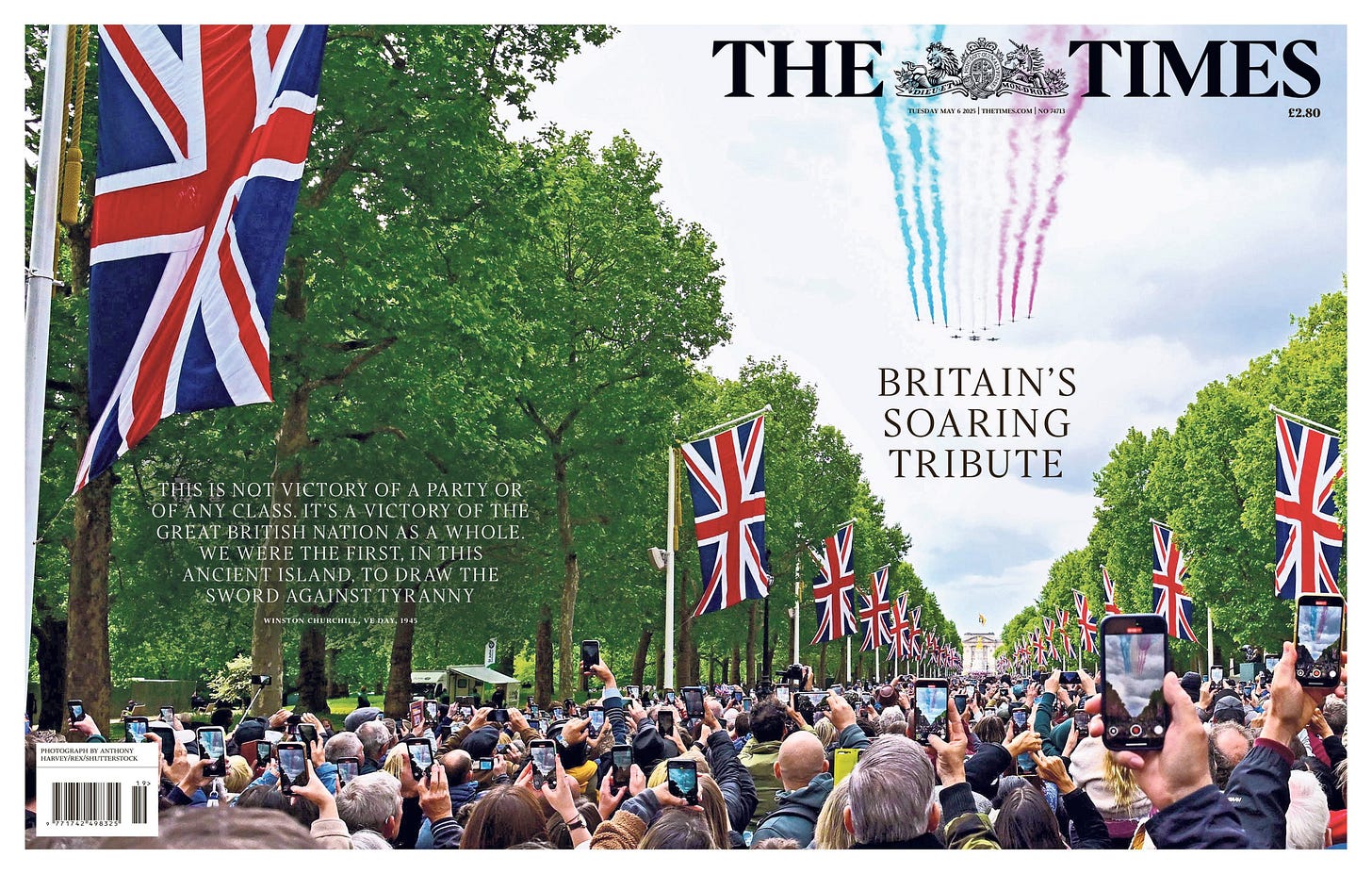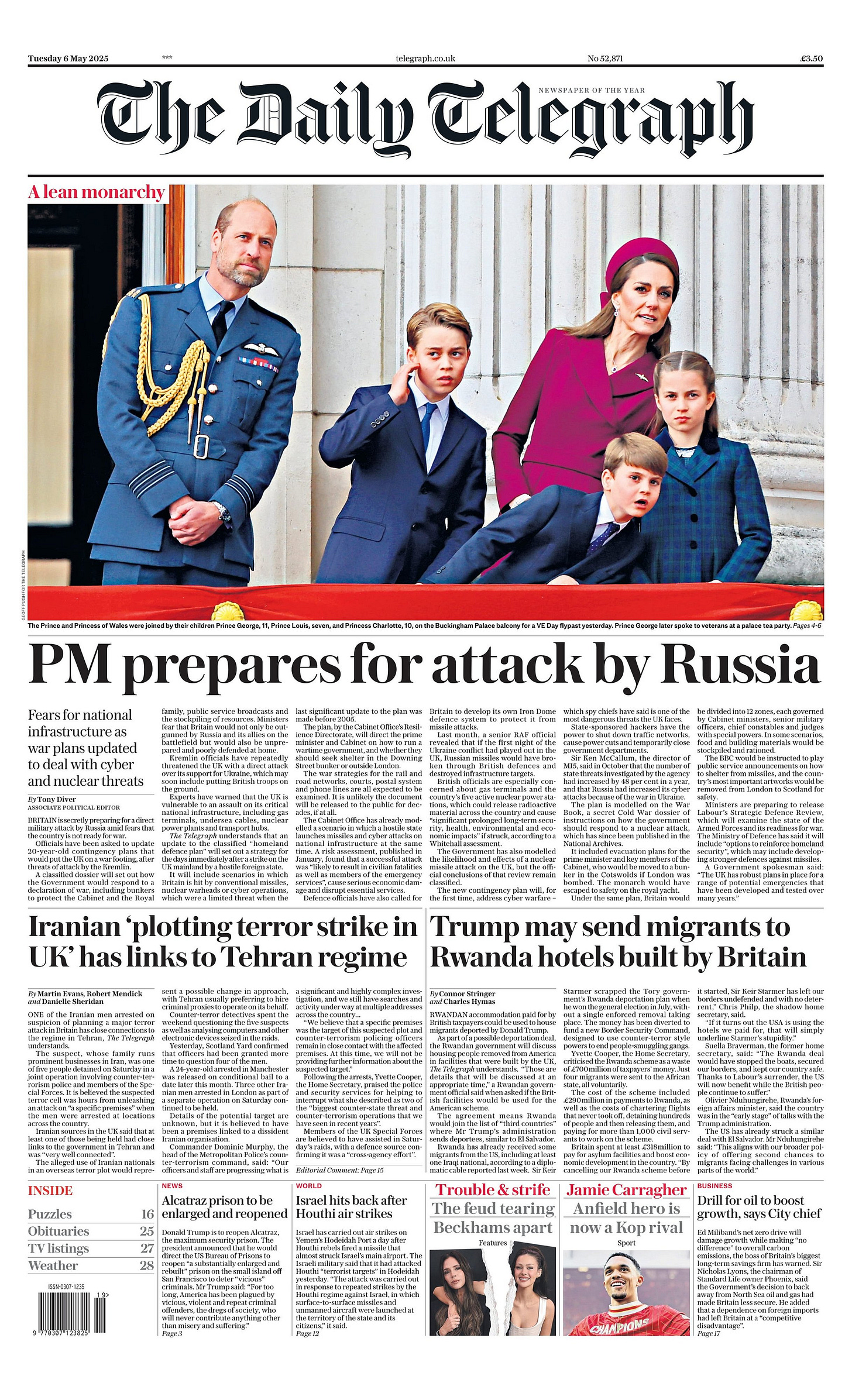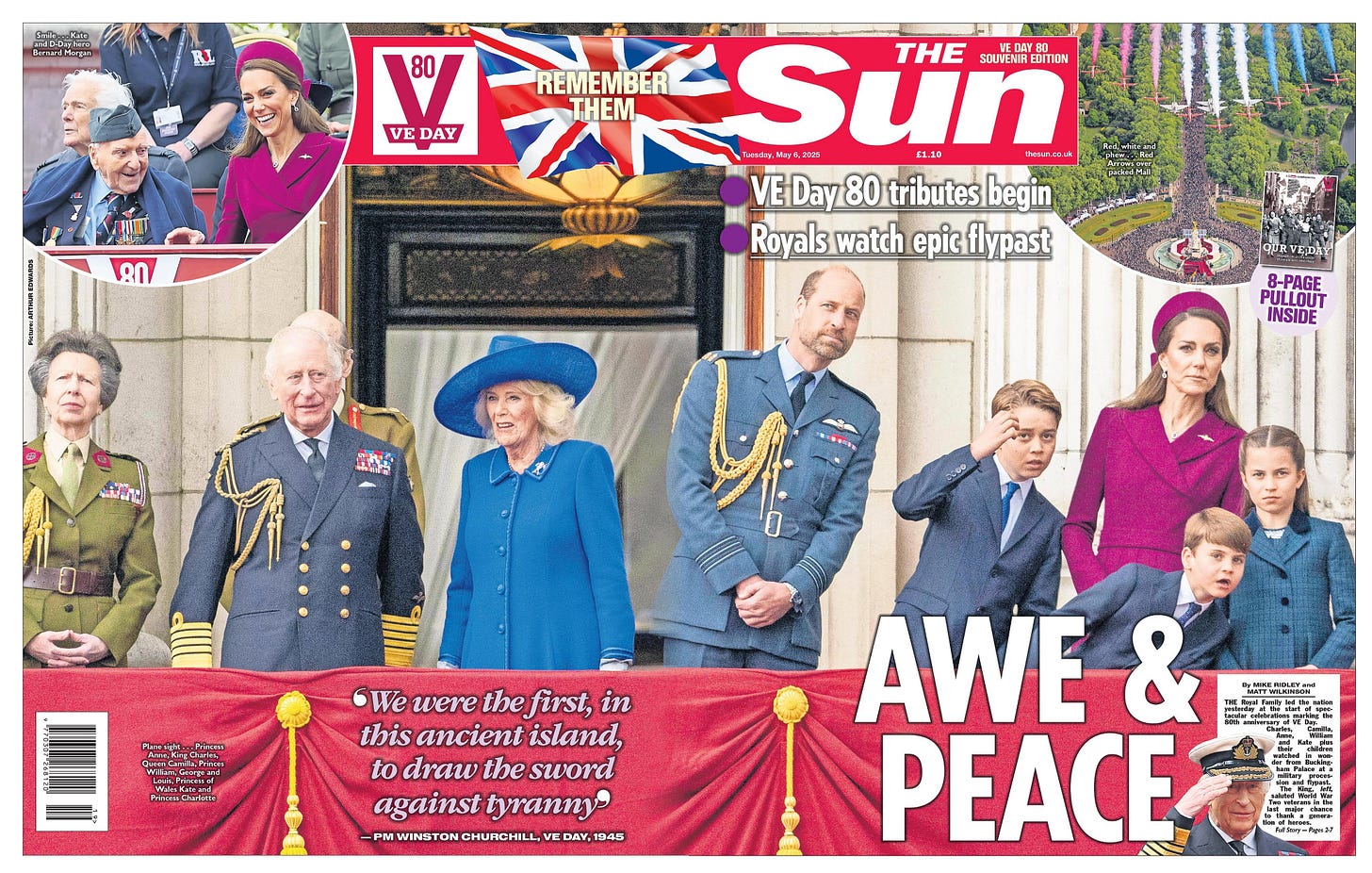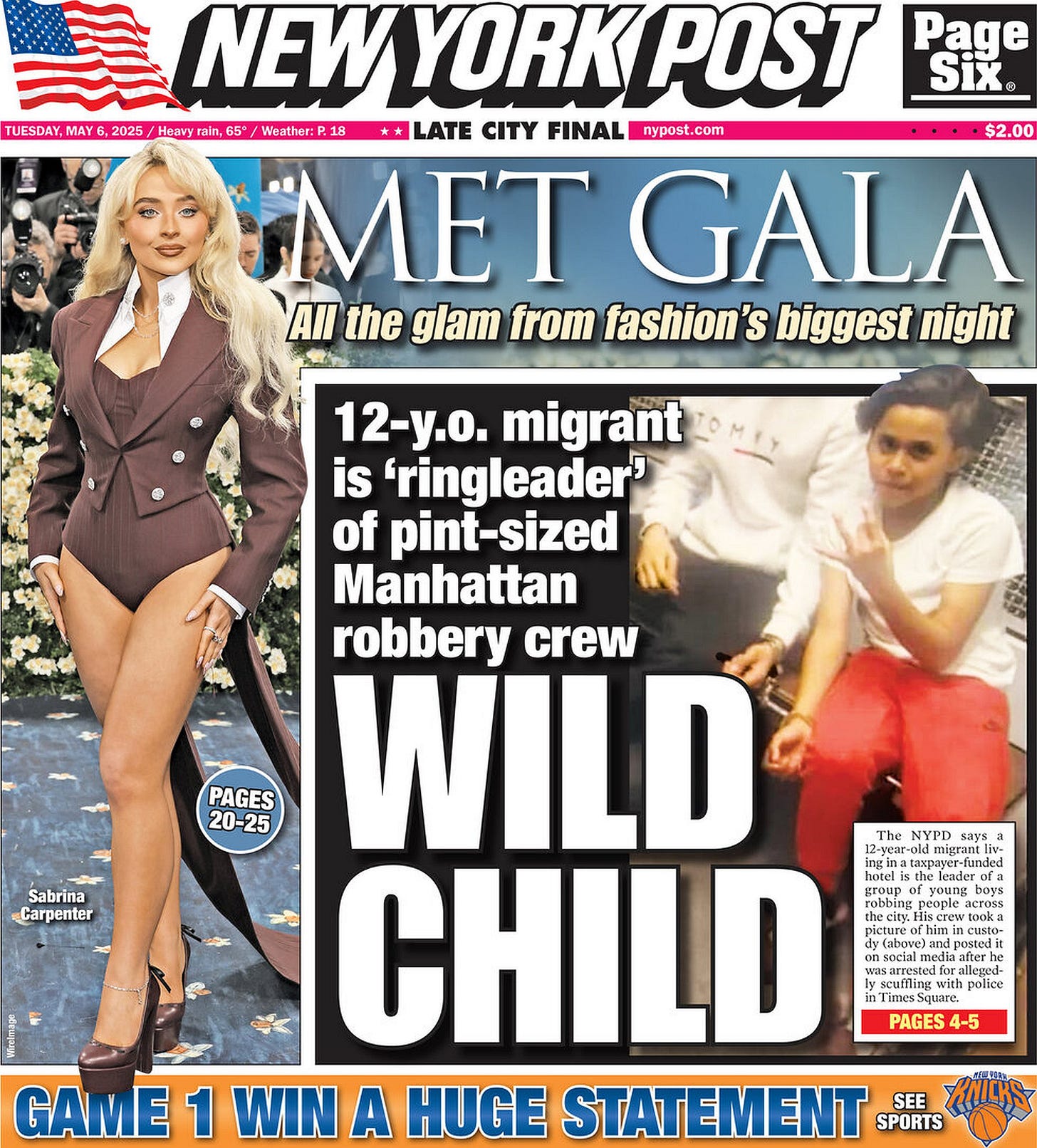Canada to Trump: We will NEVER be for Sale!
Prime Minister Mark Carney and Donald Trump “agree to disagree” over Trump's floated idea of Canada as the 51st state during Oval Office talks.
Prime Minister Mark Carney stepped into the lion's den Tuesday for his first face-to-face with his U.S. counterpart — a high-stakes meeting that seemed to go well with compliments exchanged on both sides as President Donald Trump conceded his dream of annexing Canada is likely off the table. Carney's goal for this first meeting of his premiership was to turn the page on a fractious few months with Canada-U.S. relations at their lowest point in decades. Speaking to reporters at the Canadian Embassy after his half-day of talks with Trump, Carney said he feels better about where things stand now than when he arrived in Washington — even if the U.S. president did not yet agree to dismantle the punishing tariff regime on Canadian goods. What he did secure from Trump was a commitment to negotiate some sort of new Canada-U.S. trade deal, Carney said. He also asked Trump to stop with the 51st state taunts during their private luncheon, he said. The day started with Trump warmly welcoming Carney to the Oval Office, saying there were some "tough points" to discuss while also praising the former central banker as "a very talented, very good person" who deserved to win the recent federal election. Asked by reporters if he's still serious about Canada becoming part of the U.S., Trump said he was but acknowledged it's likely a non-starter. "It takes two to tango," the president said, adding "as a real estate developer at heart" he would love to see the U.S. span from the Gulf Coast to the Arctic Circle. "I do feel it's much better for Canada," he said, claiming taxes would be lower and defence would be better if the two countries came together as one. Carney diplomatically shot down Trump's talk, saying that as a property developer he should know "there are some places that are never for sale….Having met with the owners of Canada over the course of the campaign the last several months, it's not for sale and it won't be for sale ever," Carney said. Still, the president held out hope it might happen one day. He said "never say never," about uniting the two countries. In response, Carney said: "Never, never, never, never, never," as reporters shouted questions at the president - CBC
My hot take comment: As a newcomer to Donald Trump’s tantrum diplomacy, Mark Carney handled his first Oval Office encounter with composure and skill. The former banker stayed calm, interjecting only when necessary—and with just the right tone to avoid triggering a Trump outburst. His cool-headed performance is likely to become a case study for other world leaders preparing to face the contortionist-in-chief. Back in Canada, the early response has been largely positive. Two Albertans-turned-British Columbians told me Carney succeeded in sidestepping the kind of diplomatic blowup Ukrainian President Volodymyr Zelensky faced just weeks ago.
"There are some places that are never for sale….Having met with the owners of Canada over the course of the campaign the last several months, it's not for sale and it won't be for sale ever” - Canadian PM Mark Carney
The Indian government says it has launched an attack on nine sites in Pakistan and Pakistan-administered Kashmir. Three locations have been attacked, Pakistan's military says. It says seven people including two children have been killed. Residents in Muzaffarabad in Pakistan-administered Kashmir told the BBC how they were jolted awake by huge explosions. Relations between India and Pakistan - both nuclear-armed states - have declined sharply following a deadly militant attack on tourists in Kashmir last month. Indian-administered Kashmir has seen a decades-long insurgency which has claimed thousands of lives. Kashmir is claimed by both India and Pakistan in its entirety. Pakistan's Minister of Information Attaullah Tarar said of Indian strikes, he said: "They have crossed our limits." He repeated earlier remarks from the military spokesperson about reciprocal strikes. "This attack is unjustified and an absolutely blind aggression," he said. "We will obviously retaliate... Our response is on the ground and in the air." - BBC
United Nations Secretary-General António Guterres condemned the April attack in Kashmir, and urged India and Pakistan to “avoid a military confrontation that could easily spin out of control…Make no mistake: A military solution is no solution,” Guterres wrote in a post on X, noting that tensions between the two neighbors are “at their highest in years.” - CNN
Pakistani authorities have announced the closure of airspace regions covering the major cities of Lahore and Karachi. The closure is in place until 19:20 GMT.
Several major airports fall into these regions, including Islamabad International Airport. There’s already a significant impact on flights in the region, and several planes have diverted from Pakistan, according to flight tracking provider FlightRadar24. In a post on social media, external, the firm showed diversions by Finnair, Emirates, Turkish Cargo and Saudia. In a statement to CNN, Air France said it had suspended flights over Pakistan until further notice, and was “adapting its flight schedule and flight plans to and from certain destinations”. German carrier Lufthansa has also told Reuters news agency that it was “avoiding Pakistani airspace until further notice” - BBC
Israel has attacked Yemen’s Sanaa airport and other locations in the capital area, while President Donald Trump says the US will stop bombing the Houthis after the Yemeni group agreed to halt maritime attacks. There has been no immediate comment by the Houthis. Senior Hamas official Basem Naim says there is “no sense in engaging in talks or considering new ceasefire proposals” as long as Israel’s blockade and bombing of Gaza continue. A defence official tells Al Jazeera the US did not participate in the Israeli strikes on Sanaa today. The US president says the Houthis have told his administration they no longer want to “fight” and they would halt attacks on Red Sea shipping lanes. “The Houthis have announced that they don’t want to fight any more,” Trump told reporters at the White House alongside Canadian Prime Minister Mark Carney. “They just don’t want to fight. And we will honour that, and we will – we will stop the bombings, and they have capitulated, but more importantly, we will take their word. They say they will not be blowing up ships any more,” he said. “We just found out about that. So I think that’s very, very positive. … I will accept their word, and we are going to stop the bombing of the booties, effective immediately,” he said. The Houthis have not confirmed the pause. The US has been striking the Houthis on a near daily basis - Al Jazeera
Conservative leader Friedrich Merz has been elected as new chancellor in the second round of voting in the Bundestag, the lower house of the German parliament. Merz's failure to win enough support earlier today was the first time in Germany's postwar history that a candidate missed a majority in the first round of voting. The far-right Alternative for Germany (AfD) had demanded he step aside and called for fresh elections. Chancellor Friedrich Merz's new Cabinet has also officially been appointed by German President Frank-Walter Steinmeier. The country's 17 ministers were set to meet late on Tuesday night for the first Cabinet meeting.
Colombia's president on Tuesday said he intends to sign an accord to join Beijing's Belt and Road Initiative during an upcoming China trip, a move sure to damage already frayed relations with Washington. Leftist leader Gustavo Petro said he would sign a "letter of intent" to join the pact when he meets his Chinese counterpart Xi Jinping face-to-face in the coming days. The Belt and Road Initiative is a central pillar of Xi's bid to expand his country's economic and political clout overseas - France 24
Columbia University announced that nearly 180 staff members working on grants slashed by the Trump administration will be let go on Tuesday, as prominent universities across the country prepare for a long-term funding fight with the federal government. The Ivy League institution said the cuts are a result of the “intense” financial strain brought on by the Trump administration’s slashing of $400 million in the institution’s federal funding, which the university is still negotiating to recover. “In the coming weeks and months, we will need to continue to take actions that preserve our financial flexibility and allow us to invest in areas that drive us forward,” a letter from Claire Shipman, the university’s acting president, and others said. “This is a deeply challenging time across all higher education, and we are attempting to navigate through tremendous ambiguity with precision, which will be imperfect at times.” - Politico
The UK marked the 80th anniversary of VE Day with military pomp before large crowds who had gathered in central London. Buckingham Palace may have served as the centrepiece of Monday’s spectacle before Thursday’s anniversary of Victory in Europe Day. At the event’s heart, however, were the VVIP second world war veterans, those remaining few who bore actual witness then and who today serve to remind. Back in 1945, Britain allowed itself a brief period of rejoicing on VE Day, with overwhelming relief and optimism at Germany’s surrender after long wartime years of deprivation and huge loss of life on all sides. On Monday, the first of four days of commemorations, tribute was paid with a 1,300-strong military procession, a flypast, marching bands, massed pipes and drums, and youth cadets. The procession set off from beneath the bronze gaze of Churchill’s statue in Parliament Square and ended outside the palace. Elsewhere, street parties were held across the UK. Thousands crowded on to the Mall, many waving red, white and blue flags. Watching from a dais on the Queen Victoria Memorial were the king, queen, senior royals and the prime minister, Keir Starmer, sitting alongside those who had served in the war and who were wrapped up both in their memories and against the spring chill - The Guardian
Ekaterina Barabash, a 63-year-old Russian journalist, has arrived in the French capital after a daring and highly dangerous escape from house arrest in Moscow. Born in Ukraine, she was particularly critical of Russia’s full-scale invasion. Press freedom organisation Reporters Without Borders coordinated the exfiltration of the movie critic and former RFI correspondent in Russia. Her clandestine journey was long and complex; she travelled more than 2,800km under the radar to reach Paris. Thibault Bruttin, RSF's Director General, said that several times they believed Barabash had been arrested, and that once they thought she was dead. At a small press conference on Monday, Barabash laughingly brushed aside praise of her courage as she recounted how she sawed off her electronic ankle tag and fled into the forest while disguised. “I'm a very optimistic person,” she smiled. “If I’ve decided, everything will be alright.” A Russian court had placed Barabash under house arrest in February pending trial on charges of “disseminating false information” after the journalist published Facebook posts lambasting Russia’s invasion of Ukraine, posting photographs of buildings and parks destroyed by Russian bombing and denouncing the lives lost. On April 4, the Russian Ministry of Justice designated her a “foreign agent”. Later that month, facing up to 10 years in prison, she fled and was officially listed as “wanted” by the Russian state on April 21. Born during the Soviet era in the Ukrainian city of Kharkiv, she moved with her family to Moscow, where she grew up. A culture journalist and film critic, she worked for independent Russian media outlet Republic, and before that the Russian language service of Radio France Internationale. Her ties to Ukraine stayed strong: Barabash has a son and grandson living in Kyiv whom she hasn’t seen in more than three years. “When I worried about missiles hitting their house I was close to death,” she says. Barabash felt compelled to write anti-war content fully aware it could lead to her arrest, as it indeed did when she arrived back in Russia from the Berlinale international film festival in Berlin. Bruttin said Barabash’s ordeal “shows that every journalist – even though they might consider themselves out of harm’s way because they report on culture or cinema – every journalist is under surveillance and could be repressed by the Kremlin”, adding: “There is no journalism in Russia.” - France 24
“Every journalist is under surveillance and could be repressed by the Kremlin…There is no journalism in Russia” - Thibault Bruttin, Director General, Reporters Without Borders
Ukraine and Russia on Tuesday agreed to exchange 410 prisoners of war after successful negotiations mediated by the UAE. The release of 205 Ukrainian and 205 Russian captives was secured in the 15th round of UAE-brokered talks since Moscow launched its invasion more than three years ago. So far, the two sides have exchanged 4,181 prisoners. The Ministry of Foreign Affairs extended its thanks to the two countries for their co-operation during the talks, and said that the UAE remains committed to supporting all efforts to achieve a peaceful solution to the war.


